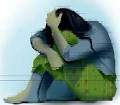By Rabia Ahmed
 Anwari, an eighteen year old was raped by four men. When subsequently she fell pregnant, her family removed her to a distant village until her child was born, which was then given away. The reason she was unable to keep her child was that even though Anwari was the victim of rape, she brought shame on the family, and her plight, if known, would prevent the marriages of Anwari, and even her sister. The perceived criminals in this case and others like it are actually the victims. The real criminals are nowhere in the equation.
Anwari, an eighteen year old was raped by four men. When subsequently she fell pregnant, her family removed her to a distant village until her child was born, which was then given away. The reason she was unable to keep her child was that even though Anwari was the victim of rape, she brought shame on the family, and her plight, if known, would prevent the marriages of Anwari, and even her sister. The perceived criminals in this case and others like it are actually the victims. The real criminals are nowhere in the equation.
I wrote recently (the post below this one) about children being given out for adoption on national television, and one reader, himself an adoptee, pointed out that the very presence (of homeless children) is a condemnation of society. It’s an important point.
A certain number of orphans in any given society is tragically normal, therefore I presume the comment refers to the presence of the overwhelming number of homeless and abandoned children in Pakistan, which is definitely a condemnation of this society. Why does this occur?
The comment also says that ‘the ‘hyper-mediation’ on behalf of needy orphans’ focuses on the adoptive parents ...’simply because they are on the other end of the scale of economic power.’ This means that those who can afford children are the ones whose suffering catches public imagination, while the sufferings of the rest, the actual victims, do not.
While suffering is suffering whoever suffers, the comment is justified. While childless couples suffer whichever end of the economic scale they belong to, the suffering of women like Anwari who must give up their children is unimaginable, and is largely ignored; as is the suffering of couples who are forced to relinquish their children because of poverty; the sufferings of the orphans of war, drone attacks, and home grown terrorism.
As the reader pointed out, ‘were everyone to adopt a dozen children, this would do nothing to correct poverty, homelessness, unemployment, hunger, war, strife, etc,’ which result in the existence of those orphans in our society today, whose presence in such numbers is tragic, and definitely not normal. ‘Allah Malik hai’ although true, does not cut it always.
The important pattern that emerges from that discussion is that it is repeatedly the victim who is cast in the ‘evil’ role, the criminals themselves go free.
Society forces its members into boxes, a different one each for: minority groups, victims of disease, poverty, rape, and others, all innocent victims of circumstance. These boxes are labelled based on skewered values and then condemned. There is a great deal of vested interest in this process.
If society is callous towards such people, it should be remembered that society is an amorphous group of people which came into its values with some aid from its leaders, its politicians, teachers, and religious scholars. They, far from leading people towards enlightenment, teach them to uphold outdated and superficial values such as feudalism and a distorted ‘honour’; to point fingers, hate, and destroy, then prevent them from debating these issues in their lives. As a result victims of rape and children are the ones condemned while the rapists go free. If members of minority groups and different sects are murdered, if the public is incited to commit such murders, and children are handed out as though they were so many sacks of flour (sometimes the same persons are implicated in more than one of these crimes)... there will be more wars, poverty and rape, and there will be orphans.
These faults in society that create orphans are man-made and the attitudes that devalue their status and of their birth families are equally created by man. In Islam and civilised societies the State must prevent victimisation, protect the weak, work towards the rehabilitation of victims, and punish the criminals who create them. If the girl child, the children born of rape and incest, and their mothers, were given their rightful place in society, huge numbers of children would not be homeless.
To adopt is honourable and encouraged in Islam. The Prophet himself had an adopted son, Zayd, whom he brought up with as much love and care as his own. Zayd was made aware of his adoption; he met his natural parents and retained his birth religion until he voluntarily entered Islam. This is what Islam requires of adoption. Adopted children are unable to inherit. They can however be bequeathed any amount during a parent’s lifetime, or from a third of the property as a written bequest, afterwards.
According to Imam Yusuf Badat of the Islamic Foundation of Toronto, ‘adopted child can (also) take the adoptive parents’ last name as long as they do not “falsify or lie” about the adoption.
Values filter down from above. In a society like ours, yes, the presence of these homeless children is a condemnation, but of whom?

This comment has been removed by a blog administrator.
ReplyDeleteThis comment was removed as it contained advertising content.
ReplyDelete